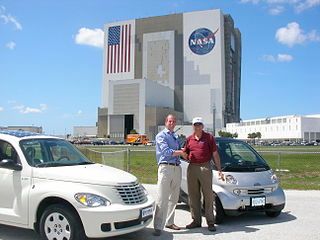From Guest Blogger Angie Mansfield: Where Will the Electric Car Industry Be in the Next Few Years?

Once advances were made in internal combustion technology, though, electric cars faded from the public’s memory in favor of cheaper, mass-produced gasoline-powered cars.
Now, with environmental issues becoming an ever-bigger concern, interest in the electric car is stirring again.
There are still a few obstacles to overcome before the electric car earns widespread adoption, including:
Initial Cost
It’s no secret that electric-only cars are significantly more expensive than either gas-only or hybrid vehicles.
Retail on an electric car can run up to $20,000 more than its gas-only counterpart. Even with a federal tax credit of $7,500, that’s a major price gap for most consumers.
Battery Life/Cost
One of the major concerns for many consumers thinking about purchasing an electric car is battery life.
These cars are powered by lithium ion battery packs, which are expensive to replace — costing sometimes twice as much as batteries installed in gas-powered vehicles.
A recent study presented at the 245th National Meeting & Exposition of the American Chemical Society showed that electric car battery packs have a life expectancy of 5 to 20 years, possibly soothing fears of some consumers.
Battery life depended on a range of factors including the battery’s temperature and state of charge. The higher the temperature, the lower the battery’s life expectancy, which may mean trouble for drivers in hotter climates.
Range
Another sticking point for some drivers is the fear that they won’t be able to make long trips in their electric vehicles.
With an average range of 100 miles on a single charge, it’s a legitimate fear, and one that auto manufacturers will have to overcome before electric cars see widespread use.
In the U.S., the federal government is attempting to help by improving the country’s network of charging stations. But the car’s range is still more suitable to short commutes.
More charging stations may not help convince drivers who want to make longer road trips — and don’t want to stop every 100 miles to recharge.
The Future
Auto manufacturers are making headway in addressing consumer concerns, and a future of all electric cars may not be so far away.
Cars like the Tesla have managed to increase the range of a single charge to around 250 miles, and have reduced the time needed to recharge.
The next major hurdle for electric cars will be achieving a mass-produced price point that consumers will find affordable.
So, have you purchased or are considering purchasing an electric car?
About the Author: Angie Mansfield is a freelance writer whose work covers topics of interest to both consumers and small business owners, including billfloat.
